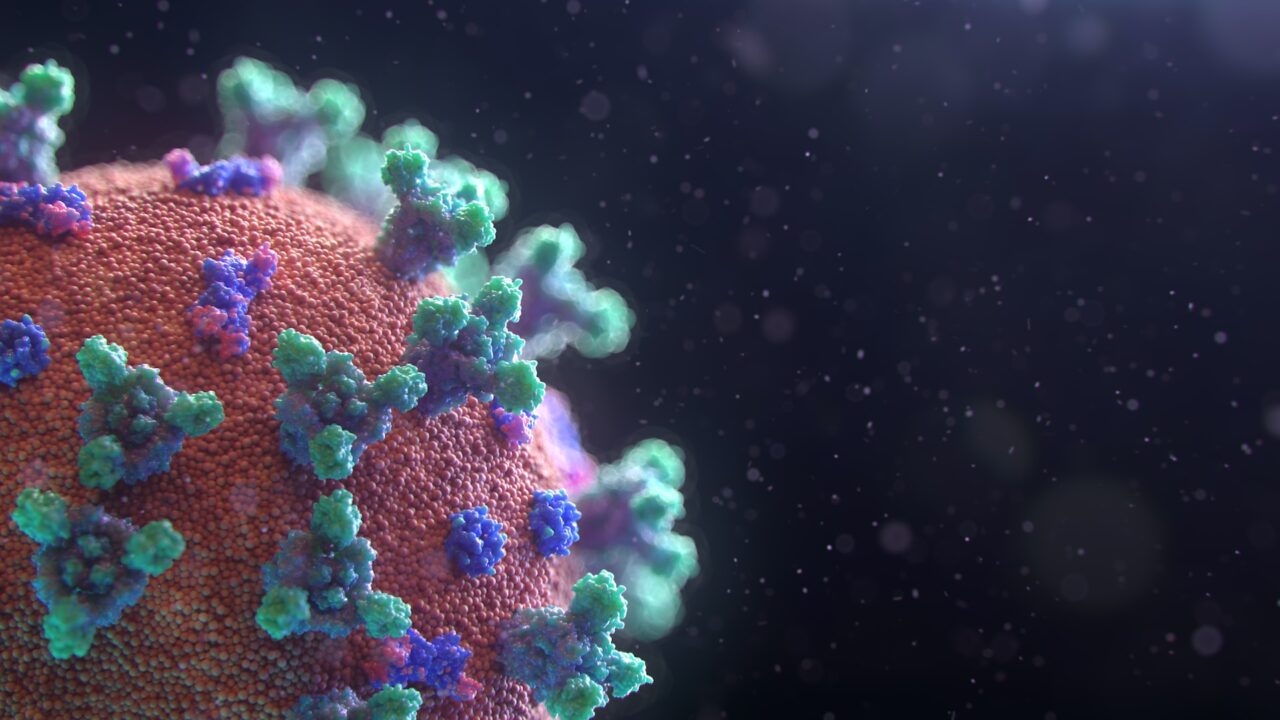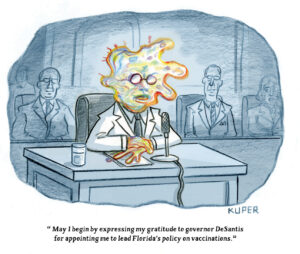COVID, We Hardly Knew Ye
The coronavirus emergency is officially over. Now let’s learn the right lessons. Photo by Fusion Medical Animation / Unsplash
Photo by Fusion Medical Animation / Unsplash
When the World Health Organization first declared Covid-19 a global emergency on Jan. 30, 2020, just over 200 people had died from the novel coronavirus.
Between April 3 and April 30, 2023, the WHO recorded 2.8 million new cases of Covid-19 around the world, and more than 17,000 deaths. In the United States during the same period, the Centers for Disease Control and Prevention (CDC) logged about 300,000 new cases and 4,400 deaths. The real numbers are likely higher.
Nevertheless, on May 5, the WHO declared that the global health emergency for the Covid-19 pandemic was over. On May 11, the emergency also will end in the United States.
If it seems as if the goalposts for what constitutes a global health emergency have moved over the past three plus years, they have. A growing acceptance of high mortality numbers is just one of many ways the pandemic changed our lives.
While health officials made it clear the pandemic is far from over — millions of new cases and thousands of deaths are likely to continue for months and years to come — for many of us, especially in the wealthy West, the combination of vaccines and natural immunity has allowed us to resume our normal lives.
There are a lot of lessons to be learned from the pandemic, but no shortage of debate over what those lessons are. Witness the continuing bitter argument over how the pandemic got started.
During the pandemic’s first year, any suggestion that an accident in a Wuhan, China, lab might be responsible was taboo among most scientists and journalists. That made serious scientific discussion nearly impossible. More recently, the debate has spilled onto a more level playing field as Congress investigates the matter. The insistence by some scientists that a zoonotic spillover in a Wuhan market is the only possible explanation continues to be eroded by new studies and new facts. While some have argued that we should do the same things no matter how the virus first infected humans, it’s harder to argue for stronger policy measures — such as regulation of risky gain-of-function research, or new restrictions on the animal wildlife trade — without the necessary facts.
The developing world was particularly hard-hit by the pandemic and continues to be. The good news is that many poor countries, especially in Africa, mounted the infrastructure necessary to vaccinate and treat at least a portion of their populations, especially those that had strong partnerships with more developed countries and international agencies. But the weak point was access to vaccines and antiviral drugs, a problem greatly exacerbated by the strict control drug companies exercised over the distribution of lifesaving products. Nevertheless, there is now considerable evidence that granting the corporate world concessions over intellectual property was not key to getting vaccines and other drugs on the market, either in the West or the developing world.
In an eye-opening commentary in the journal Nature Biotechnology in October, E. Richard Gold, an intellectual property expert at McGill University in Montreal, argued that the Covid-19 pandemic dispelled two destructive myths about the importance of patent protection during a pandemic.
The first is the notion that without patent protections, no vaccines or drugs would have been developed in the first place. The second is the idea that intellectual property barriers do not hinder the global distribution of lifesaving vaccines and treatments.
Both are false, Gold argues, and he backs up his assertions with a litany of evidence.
For example, he points out that the mRNA technology behind the vaccines developed by Pfizer and Moderna “dates back many decades and was almost entirely publicly funded.” The drug companies made most of their money on procurement contracts and licensing new technologies to deliver mRNA vaccines effectively, such as the lipid nanoparticle delivery system.
As Gold outlines, Pfizer, Moderna and their partners were able to use these more specialized patents to prevent WHO and other agencies and countries from developing their own delivery systems, sometimes bottling up vaccine and drug distribution to those countries most in need of them.
“Rather than rely on … patents and trade secrets … to supply us with antivirals after a pandemic hits,” Gold said, “together governments, researchers and companies can develop drugs in advance. We already know the viruses that will likely cause the next pandemic.”
One of those viruses, the highly pathogenic H5N1 variant of avian flu, has been rapidly spilling into mammalian populations over the past year and a half, raising alarms among experts. Have we learned the lessons that would help get us ready for it? Based on our early responses to this threat, it’s not clear that we have.
Your support is crucial...As we navigate an uncertain 2025, with a new administration questioning press freedoms, the risks are clear: our ability to report freely is under threat.
Your tax-deductible donation enables us to dig deeper, delivering fearless investigative reporting and analysis that exposes the reality beneath the headlines — without compromise.
Now is the time to take action. Stand with our courageous journalists. Donate today to protect a free press, uphold democracy and uncover the stories that need to be told.







You need to be a supporter to comment.
There are currently no responses to this article.
Be the first to respond.